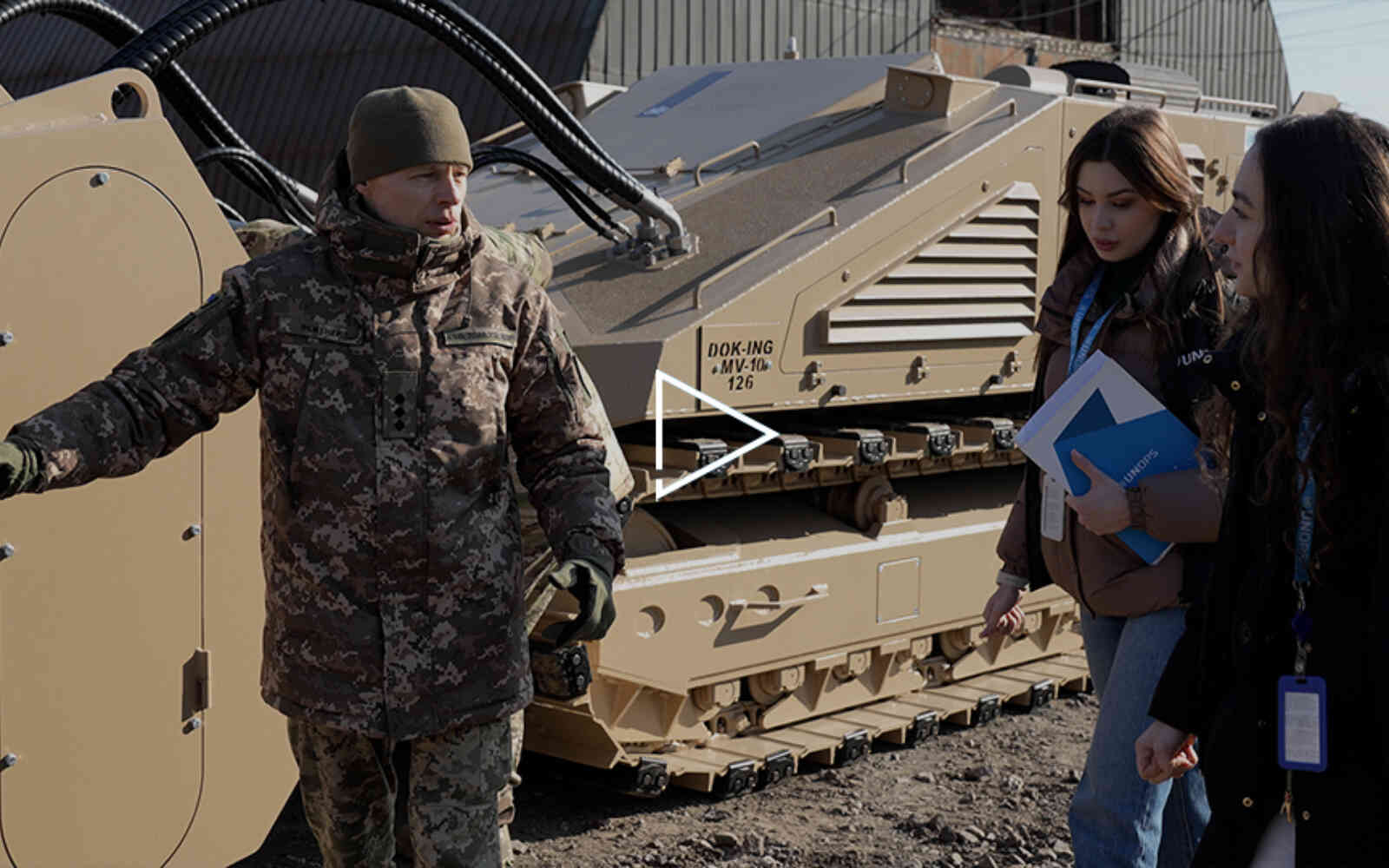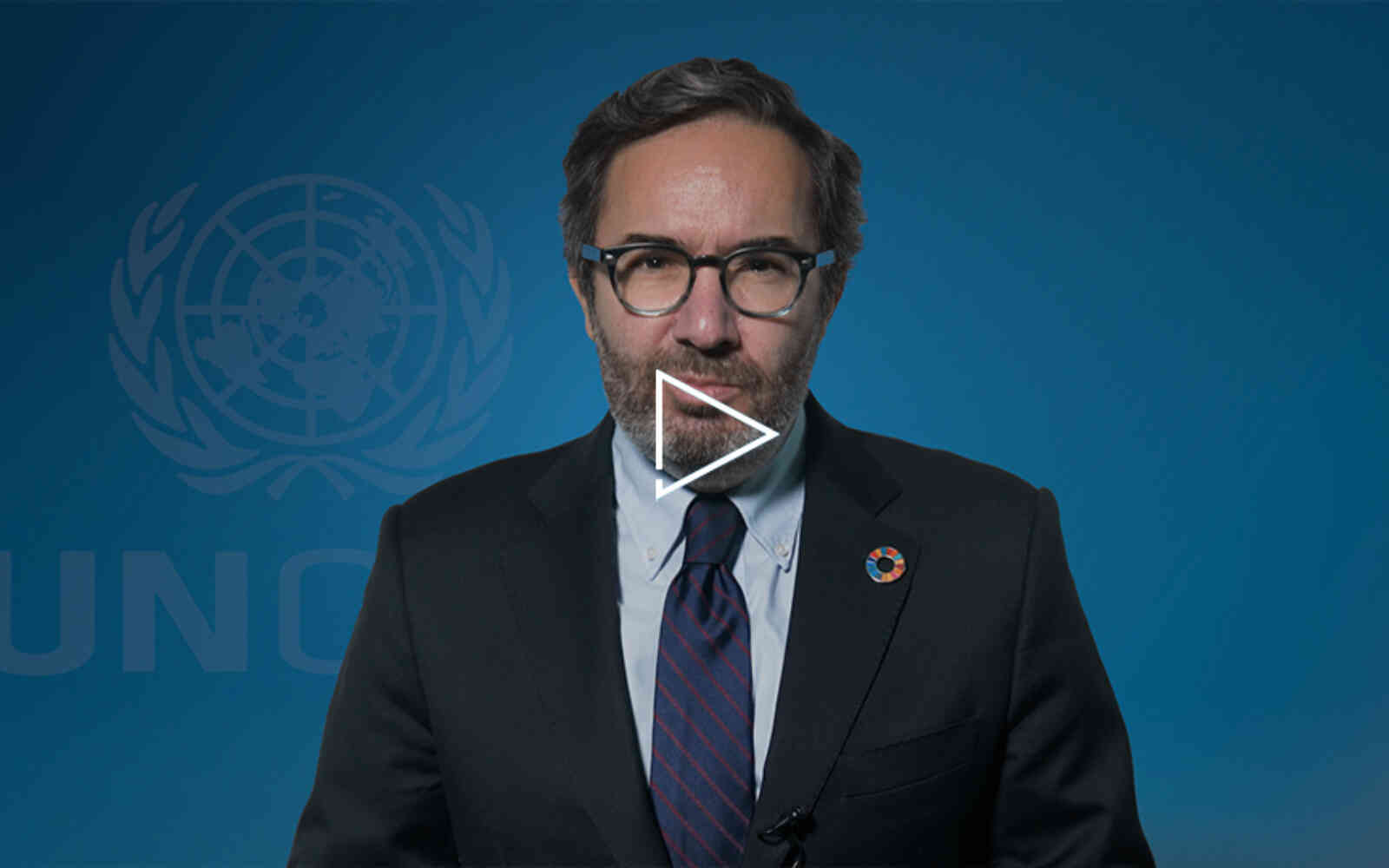The United Nations Office for Project Services (UNOPS)
“Making peace in practice”
Speech by Grete Faremo, Under-Secretary-General and Executive Director of UNOPS, at the Oslo Forum, Oslo, 13 June 2016
[Check against delivery]
Distinguished guests, colleagues, ladies and gentlemen.
It's good to be back home, and to see so many familiar faces, both from Norway and also many international friends.
Many of you are familiar with the Mediation Support Unit of the United Nations Department for Political Affairs (DPA). At its core is the 'Stand-By Team' of experts, ably managed for many years by the Norwegian Refugee Council in cooperation with DPA. This is an initiative that has been solely funded by Norway for many years.
We are presently in the 71st year of the United Nations. Last year the member states of the United Nations negotiated and adopted several acutely important agreements, such as the Addis Ababa document on financing of development, - a process chaired by our Norwegian UN ambassador, together with his Colleague from Guyana. You are also familiar with the new Sustainable Development Goals, also adopted last year which set targets for human development towards 2030. And the Paris Agreement on climate change.
This all goes to show that the UN is tasked with the most demanding and complex issues before us. And since its foundation, it has been constantly tasked with issues of peace and security.
From the series of important meetings this year on peace and security, on peace operations, and on the role of the United Nations, a common denominator has been that we need to strengthen our efforts to prevent crisis and conflict.
Calls have been made for a more proactive United Nations that can use its offices, not least those of the Secretary-General, to engage with parties to an ensuing conflict and do everything within its power to help prevent tension and simmering conflict to escalate into situations where force is used.
The Department of Political Affairs is working around the clock, together with the representatives of the UN in various conflict-prone countries and regions.
Among the most promising tools at the disposal of the UN is the Mediation Support Unit. As from the end of January this year, servicing and supporting it' Stand By Team, was taken over by UNOPS.
So what do we do in this role?
We manage a roster of qualified mediators which are at the disposal of the United Nations on short notice. From an existing roster provided by from DPA, we will recruit to expand and extend the range of mediators available.. When these mediators are called upon, we make all the arrangement for their deployment to the country or region where they are needed. We are talking about visa, travel, accommodation, security clearance, their per diems and their salary payments.
For example, if the DPA wants three mediators in a country next Monday, we will get them there on Sunday. We are on call 24/7 in the service of the UN. And we have in the recent past managed to scramble the mediators on four hours' notice. This is extremely important Time itself is a critical factor.
So why did the UN turn to UNOPS? And who are UNOPS? My guess is that many of you here have had limited experience with UNOPS, so I will briefly tell you who we are and what we do.
UNOPS' establishment
The office of Project Services used to be a part of the UNDP until the early 1990s. In 1992, The Secretary General brought in Kenneth Dadzie, who was then Under Secretary-General of UNCTAD, to conduct a review into the reform of economic and social sectors. His 1993 report, the "Dadzie Report," addressed a number of reforms.
One of them was to separate OPS from UNDP to enable UNDP to focus on its core mandate of funding and coordinating development assistance.
The separation was also designed to address the "conflict of interest" situations that could arise if UNDP also implemented projects, or in other words "allocated projects to itself" rather than using the best equipped specialized agencies or other funds and programs with relevant expertise.
Thus, one clear objective was to avoid duplication in service delivery and foster the creation of a more unified and collaborative system.
As a consequence the General Assembly established UNOPS as a separate entity and to be the operational arm of the UN back in 1994.
We are not a policy body.
We are the "work horse". We take the "what's" and "why's" of the UN system and turn them into a "how".
We support the successful implementation of UN partners' peacebuilding, humanitarian and development projects around the world. UNOPS builds the infrastructure needed for development, such as schools, hospitals and roads in post-disaster and conflict-affected areas, as well as in economies in transition.
We provide expert procurement support to help governments buy the goods and services they need.
We manage projects and programmes of every size, while simultaneously enhancing the capacity of developing countries to manage their own initiatives.
Last year was a record year for UNOPS. We delivered more than 1.4 billion dollars' worth of aid and development, working on more than 1000 projects in over 80 countries. This is a 16% increase over 2014.
We have improved our levels of efficiency. UNOPS management expense as a percentage of our total delivery has gone down from 4.8 per cent to 4.5 per cent as compared to the year before.
Today - more than ever - governments, businesses and indeed also international organizations, must deliver measurable results while keeping costs in check, and we at UNOPS are driven by those imperatives.
Each year we undertake a survey among our clients and partners on how they see us performing – and, of course, how we can further improve. The overall satisfaction rate has gone up to 82 per cent. The words most often used by our partners describing UNOPS are "reliable, "efficient" and "flexible".
Our largest UN partner was the Department of Peacekeeping Operations, where we provided more than $250 million dollars' worth of implementation support to the United Nations Mine Action Service, saving lives and limbs.
In 2015, UNOPS also contributed to ameliorating the most serious crises and conflicts of our time.
In Syria, we have helped deconstruct chemical weapons plants. We are working to meet the needs of refugees and host populations in the neighbouring countries in several areas, including security, power supply, and logistics. In Iraq, in cooperation with a wide range of partners, we have set up and managed an information centre for internally displaced people..
Last year I had the opportunity to witness our good work in Jordan where we work closely with the Government and the main humanitarian agencies.
In Gaza, UNOPS has been implementing activities to support large-scale reconstruction efforts. Through this work more than a million tons of construction-materials entered Gaza since September 2014, supporting essential housing and shelter needs for Palestinians. The particular success here has been to establish a workable system of getting the construction materials into Gaza.
In Yemen, the current conflict has left 80 per cent of the population in need of assistance. We are helping the Government and our UN partners ensure that essential goods reach the country.
UNOPS has become the first member of the UN family to adopt the international Global Reporting Initiative platform for its reporting in furtherance of transparency and accountability, two hallmarks of UNOPS' operations.
Achieving the objectives of the 2030 Agenda requires trillions of dollars on an annual basis. ODA can still play an important and catalytic role in achieving these objectives, but most of the capital to invest in sustainable development will have to come from the private sector.
UNOPS believes that the UN system – with its unique set of core values, its expertise and its global perspective and convening power – has an important role to play. But this demands that we keep evolving, and that we understand how private capital works.
We are currently exploring the possibilities to develop and launch two investment vehicles to catalyse the allocation of private capital. The first will contribute seed funding to projects during their development stage; the second focuses on financing more mature, sustainable infrastructure projects and initiatives that measurably contribute to the realization of the Sustainable Development Goals and the Paris Climate Agreement.
Thank you











